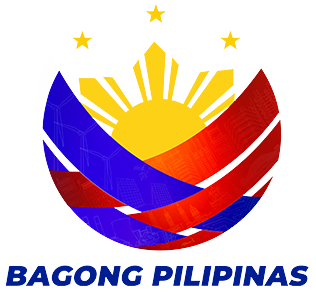Librarianship
“Philippine Librarianship Act.”
The practice of librarianship shall constitute in holding out oneself as skilled in the knowledge, art, and science of the organization, dissemination, preservation, and conservation of recorded information; the rendering, furnishing and contracting of professional services such as consultations and advice on the organization and management of libraries, data banks, research and information centers to clients on a fee basis or otherwise; the teaching of subjects in the library and information sciences, and the signing or authenticating for clients of documents or reports when called for.
The Board for Librarians was created by virtue of Presidential Decree No. 6966 also known as “The Philippine Librarianship Act” which was enacted into law on September 19, 1990.
The Board conducted its first licensure examination on December 3, 1992. Two years later, it launched the full computerization of the librarian licensure examinations.
The first Board was composed of: Dr. Irene D. Amores as Chairman and Ms. Susima L. Gonzales and Ms. Belen B. Angeles as Members.
Republic Act No. 9246
"The Philippine Librarianship Act of 2003."
TITLE
AN ACT MODERNIZING THE PRACTICE OF LIBRARIANSHIP IN THE PHILIPPINES THEREBY REPEALING REPUBLIC ACT NO.6966, ENTITLED: "AN ACT REGULATING THE PRACTICE OF LIBRARIANSHIP AND PRESCRIBING THE QUALIFICATIONS OF LIBRARIANS," APPROPRIATING FUNDS THEREFOR AND FOR OTHER PURPOSES.
Philippine Librarians Association, Inc. (PLAI)
Rm. 301, National Library Building
T.M. Kalaw Street
Ermita, Manila
Telefax: 528-0356 / 525-0356 / 525-9401
Fax No.: 524-2248
Website: http://plai.org.ph/
Re-accredited: Res. No. 2008-438 dated April 1, 2008
Between 1920 and 1923, a group of six professional librarians returned to the Philippines from the United States where they trained in library science as government scholarship grantees. Realizing the need for an association to facilitate the interchange of ideas, they proposed to Dr. Trinidad H. Pardo de Tavera, then director of the Philippine Library and Museum, the establishment of a library association in the Philippines.
On October 22, 1923, Dr. Pardo de Tavera met with a group of six professional librarians and other librarians interested in the organization of the Philippine library association. This marked the beginning of the Philippine Li- brary Association, Inc. (PLAI). A committee was organized to draft the constitution and the by-laws of the Association. In the next meeting on October 29, the constitution was ratified after which an election was held for the first set of officers with Dr. Pardo de Tavera unanimously elected as President. The Association was registered as a non-stock corporation on October 8, 1925.
Through the efforts of the PLAI, Governor-General Frank Murphy declared June 18-24, 1934 and every year thereafter as National Book Week. This was subsequently changed to November 24-30 by President Manuel L. Quezon.
The quest for status and recognition has been the foremost concern of Filipino librarians. In 1962, the Association sought the help of Senator Eva Estrada Kalaw who then introduced Senate Bill 916 entitled “An Act to Regulate the Practice of Librarianship in the Philippines and for Other Purposes.” The bill commenced the endless fight for state recognition of the profession. The PLAI’s dedication in the campaign for a professionalization law is considered its crowning glory. On September 19, 1990, Republic Act No. 6966 otherwise known as the “Philippine Librarianship Act” was finally enacted. The PLAI is an active member of the Congress of Southeast Asian Libraries (CONSAL), International Federation of Library Associations and Institutions (IFLA), American Library Association, International Association of Orientalist Libraries and UNESCO/PID. It has also forged linkages and fostered cooperation with national associations such as the Philippine Board on Books for Young People, the Children’s Literature Association of the Philippines, the National Library, and the National Committee on Libraries and Information.
Qualification of Board Members
The Chairman and members of the Board, at the time of their appointment, shall posses the following qualifications:
- A natural born citizen and resident of the Philippines;
- good reputation and moral character;
- A librarian as defined in "Section 4(a)" of this Act;
- Active in the practice of librarianship for at least ten (10) years, five (5) years of which is in a managerial position;
- Must not be a member of the faculty of a university, college, school or institution conferring the academic degree on librarianship, or offering review classes for librarian licensure examination;nor a person who has a direct or indirect pecuniary interest in any such institution; and
- Must not be an incumbent officer of the accredited, integrated national professional organization librarians.


